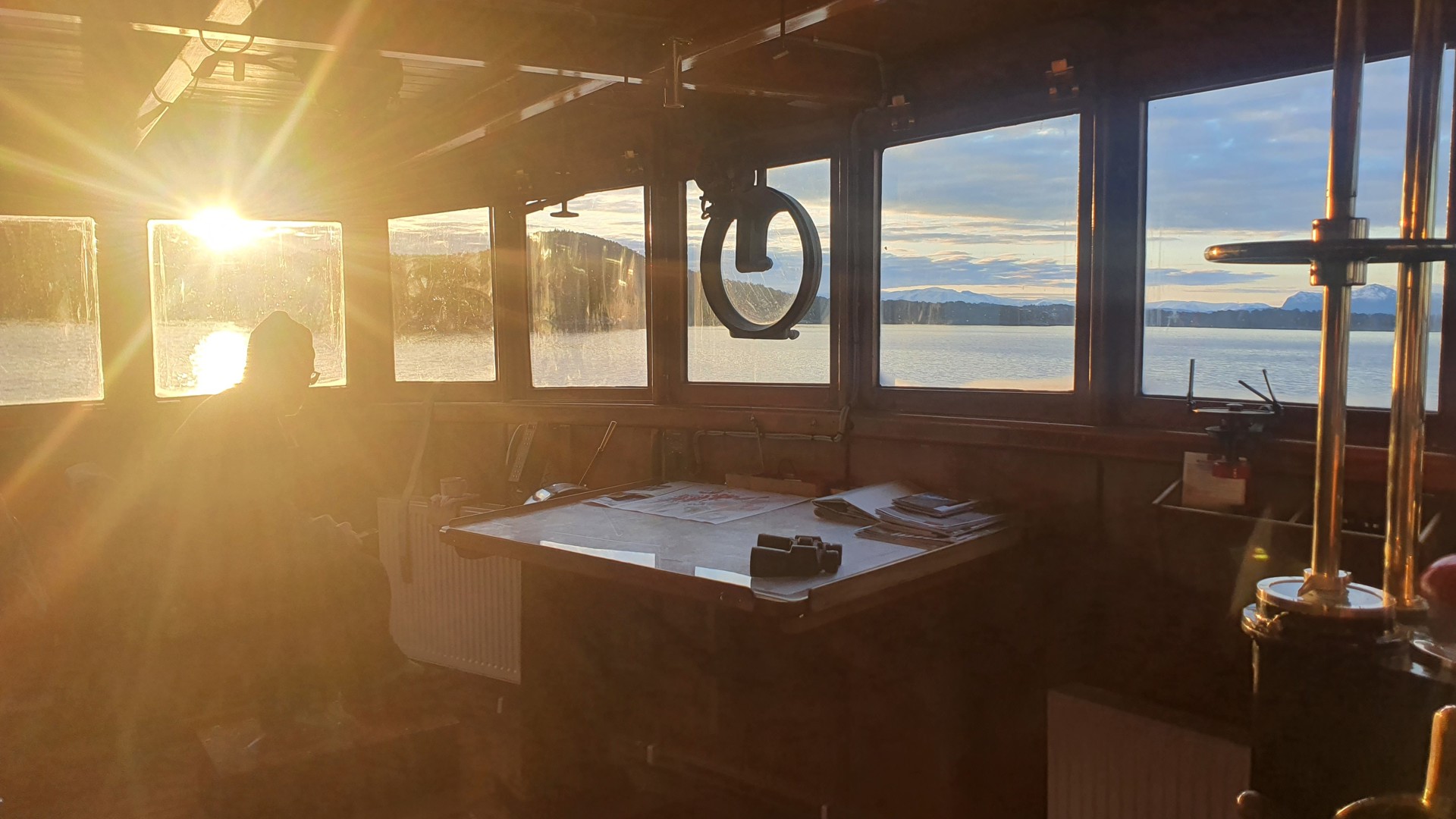What is it like to be a lone chef on board a small ship in such a unique environment as the Arctic? And how do you prepare dinners for an entire season in one of the world's most remote places? We took the opportunity to catch up with John before he embarked on the M/S Stockholm, where he will offer our passengers delicious meals for another season. We also got to talk to Lillbritt, who has run eight seasons on board M/S Stockholm and this year is responsible for the provisions.
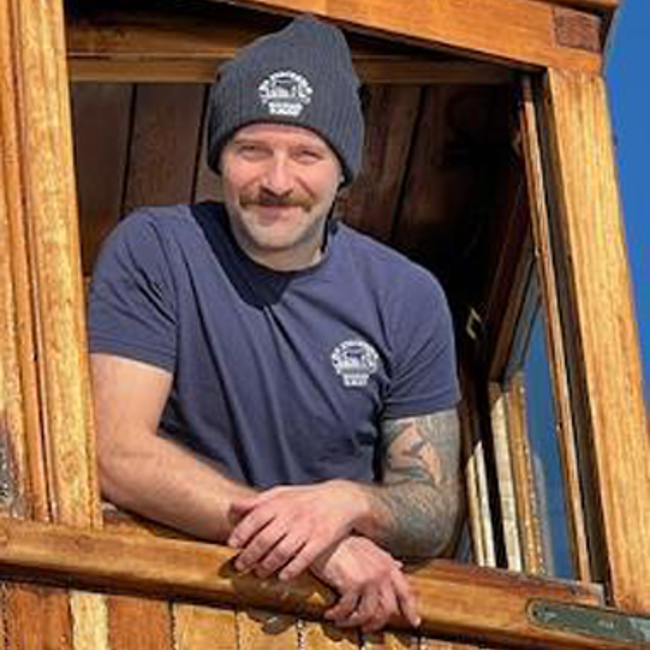

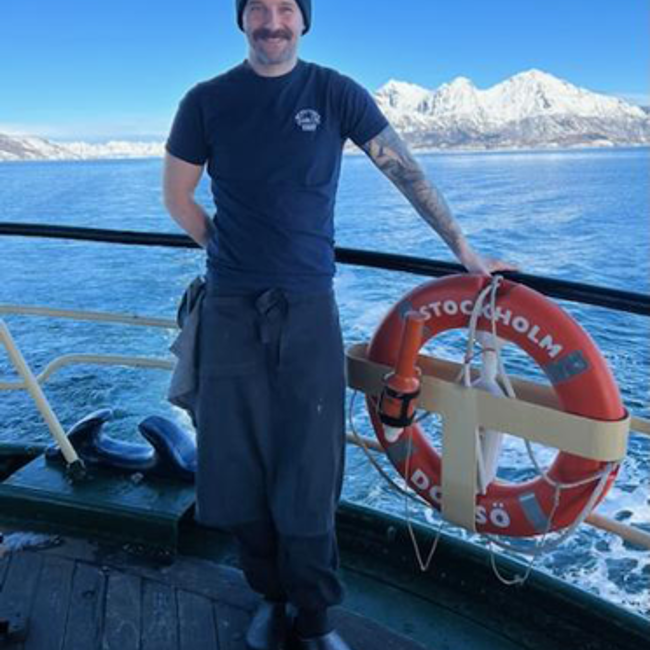

John Klevsäter
What is your role on board M/S Stockholm?
I am a chef.
How many seasons have you worked?
This will be my second season. I started in the middle of summer last year up in Svalbard.
How did you come to apply for this job?
It was by a coincidence. I was invited to an old captain's house for coffee. He had a contact at M/S Stockholm and asked if I was interested in going to Svalbard. Within five minutes, I had accepted the offer! It was mainly the challenge of being the only chef on board that attracted me, and I saw an opportunity to grow enormously in my professional role. I have always worked seasonally, eight-to-five jobs are not for me.
Do you have a similar experience from working on a boat before?
My father is a captain. He is actually the captain on board M/S Stockholm this season, it was discovered after I accepted the job so it was a bit funny. I have been allowed to go with him on his trips since I was five years old, to South America, the Amazon, Panama and remote Indian villages, among other places. I am a born adventurer - can't sit still! For a few seasons, I worked in the fishing industry in Northern Norway, and then lived the rest of the year in India. I had never been to Svalbard before I joined M/S Stockholm last year, so it was a new experience.
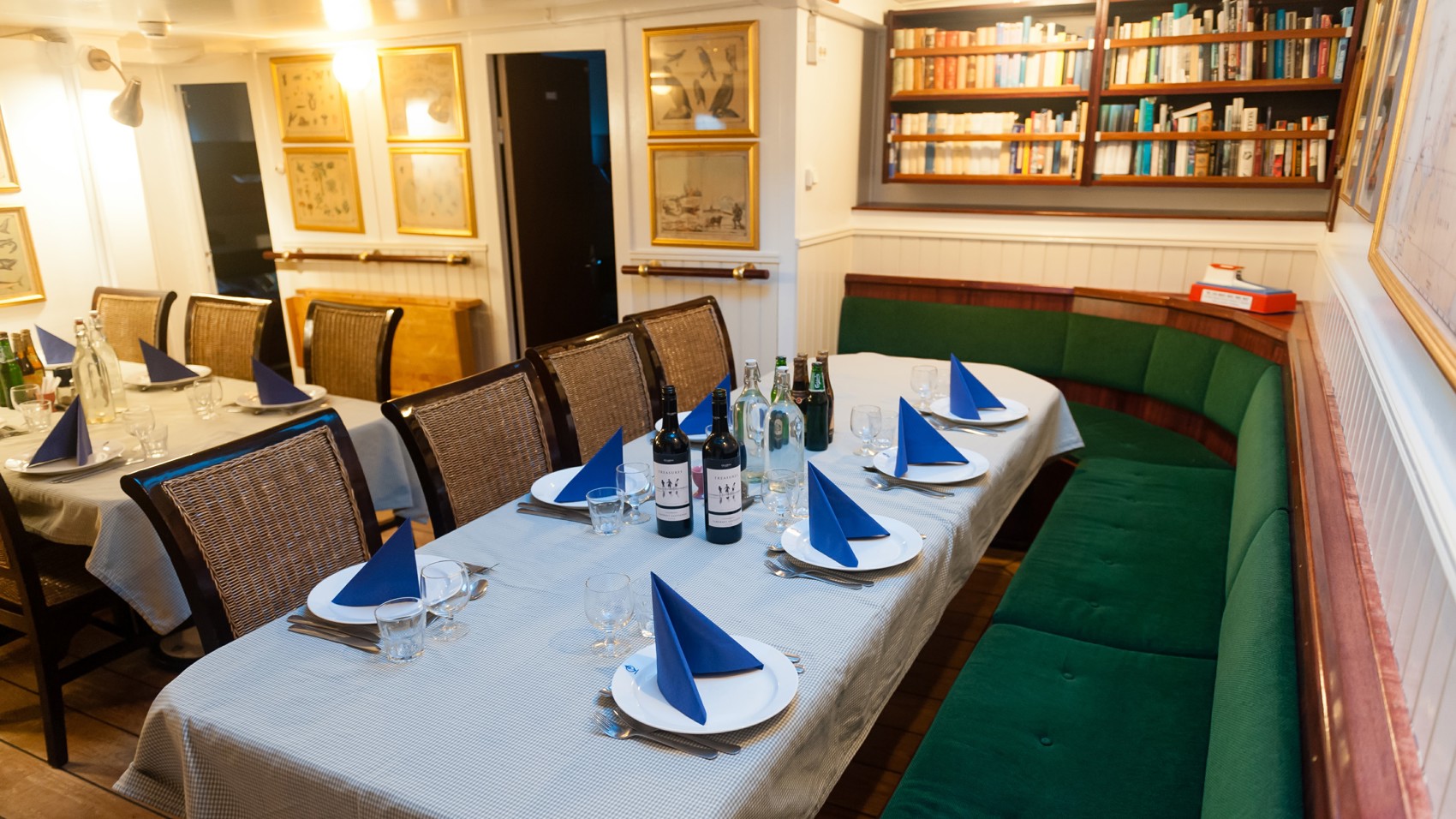

How do you plan a menu at sea?
It’s up to each chef to set his menu, you have complete freedom there. For me, it’s important that the guests have a fantastic culinary experience. I do my best to vary the meals according to the resources available.
What does "a normal working day" look like for you on board?
I’m the first one to get up in the morning, and the last one to go to bed in the evening. Often, I get up around 05.30 AM and do some yoga training on outer deck. I like to go out into the cold and remind myself of where I am. I swim in the sea almost every day. Then I start with breakfast. The guests will wake up to the smell of freshly baked bread. After lunch there may be some free time, then I may sleep for an hour to be alert in the evening. Sometimes, if I have freed up time, I join the guests in the Zodiac. In the afternoon, I prepare a three-course dinner that is served around 7 PM. After that, it's mostly washing up dishes.
The work environment is incredible. If you work ashore, you are used to standing and looking into the tile. Here you might see large ice floes, dolphins, walruses and whales passing by.
What are your expectations for this season?
I hope for both personal and professional development. Learn even more and take cooking to another level.
Will you work the whole season or go home in between?
I will be working the whole season. But we have a schedule of six weeks on and six weeks off, so there will be a lot of time at home as well. I am in the process of building a house on Gotland, so this type of job suits me well, as it allows me to free up time for that as well. From November to March, I am completely free from work. Then there is room for growth in other ways, maybe take some courses and tinker with other projects. I like that you get some energy and time for other things.
Do you have family at home?
I have my girlfriend on Gotland. Of course, it's hard to be apart, but I still think it's good for couples to be away from each other sometimes. It’s for good and bad, but we have chosen to focus on the positive.
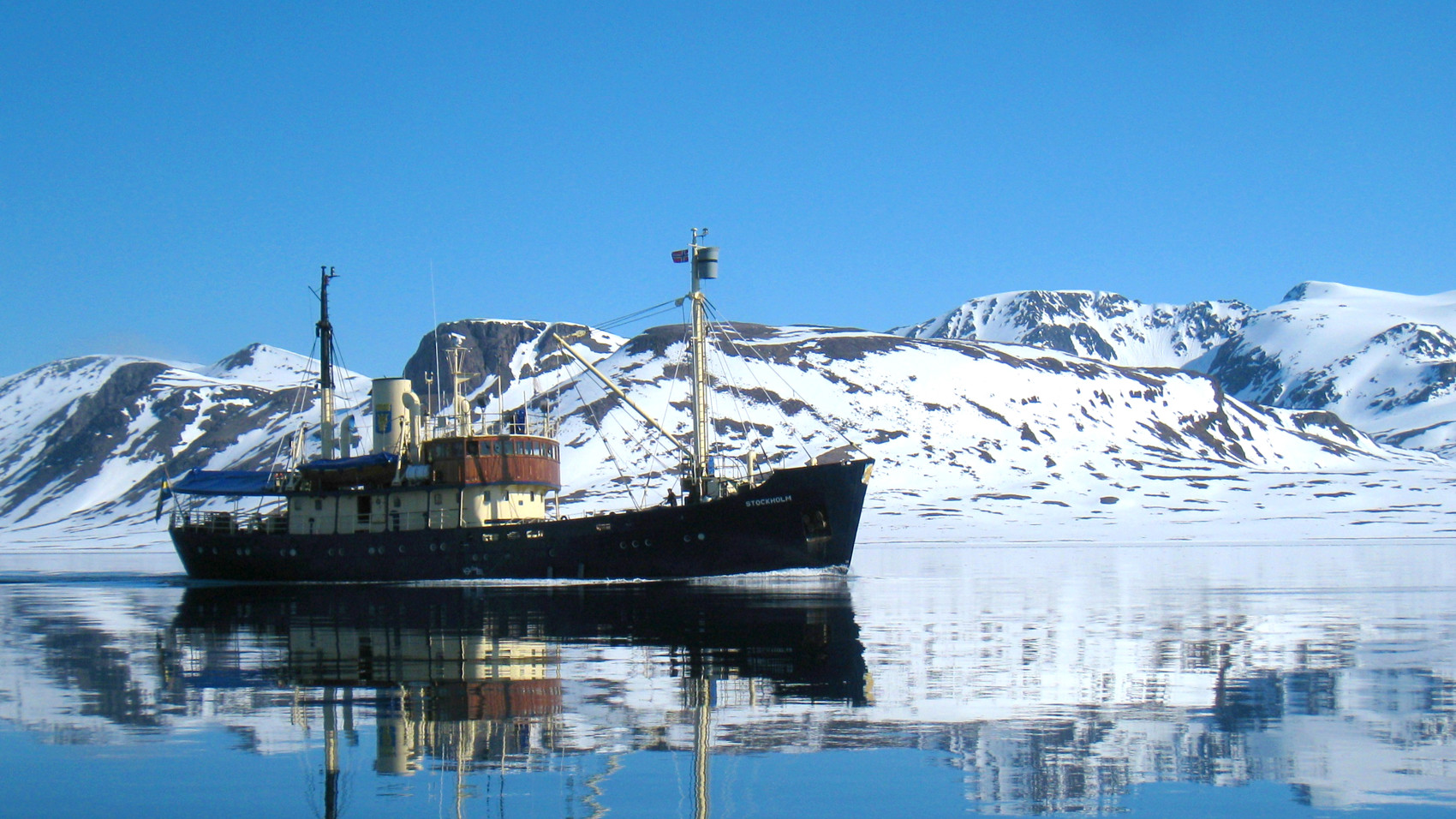

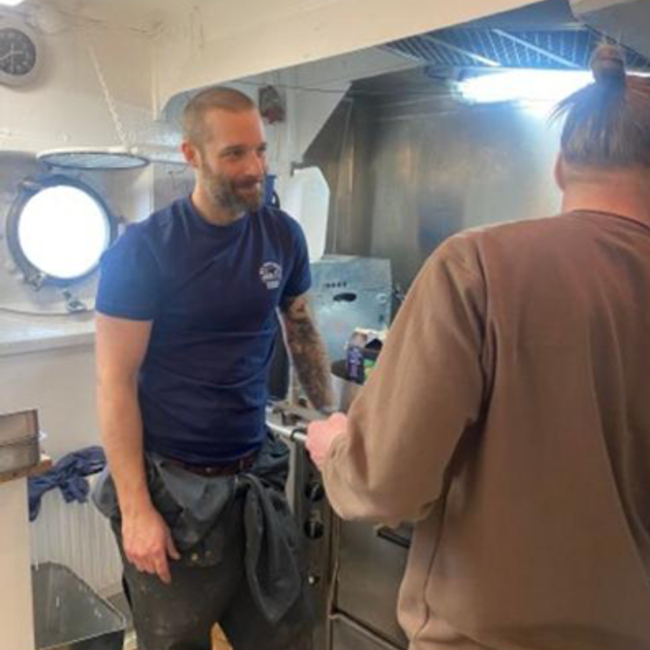

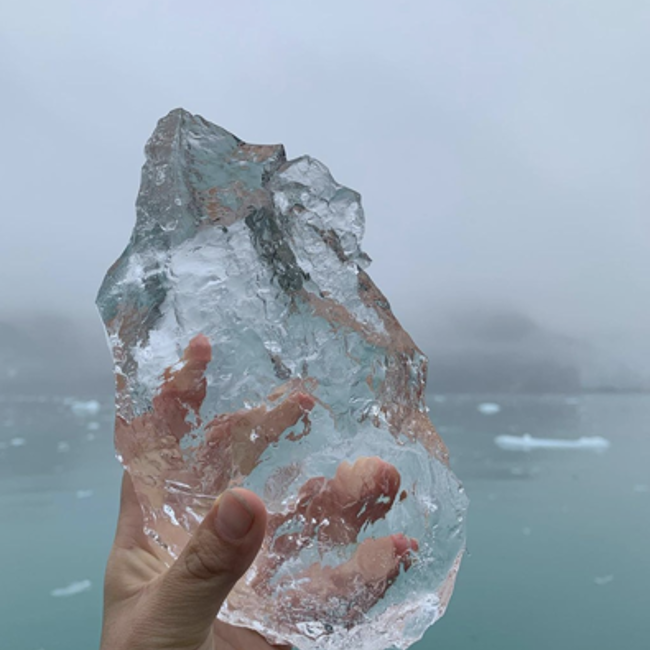

What is it like to work as a chef in such a truly unique environment like the Arctic?
Svalbard is really the "end station of the world" in terms of resources and you have very limited assets. There is only one store in Longyearbyen and you have to be at least ten days ahead when it comes to orders. It's not like when I worked in Visby, on the island of Gotland, and you could just throw off your apron and run to the grocery store if you needed something. Meat, fish and everything that can be frozen is packed from Sweden to last the whole season. There is a lot to think about, how much is used and how much can fit on board? It's important not to forget anything, if there's no coffee on board for ten days you won´t be popular.
The powers of the weather also make it very special to work on board. As a chef, you must work even if it's windy and you are feeling a bit seasick, since you are alone in your position. We always have a standby, but it takes time for that person to get there and it’s also costly.
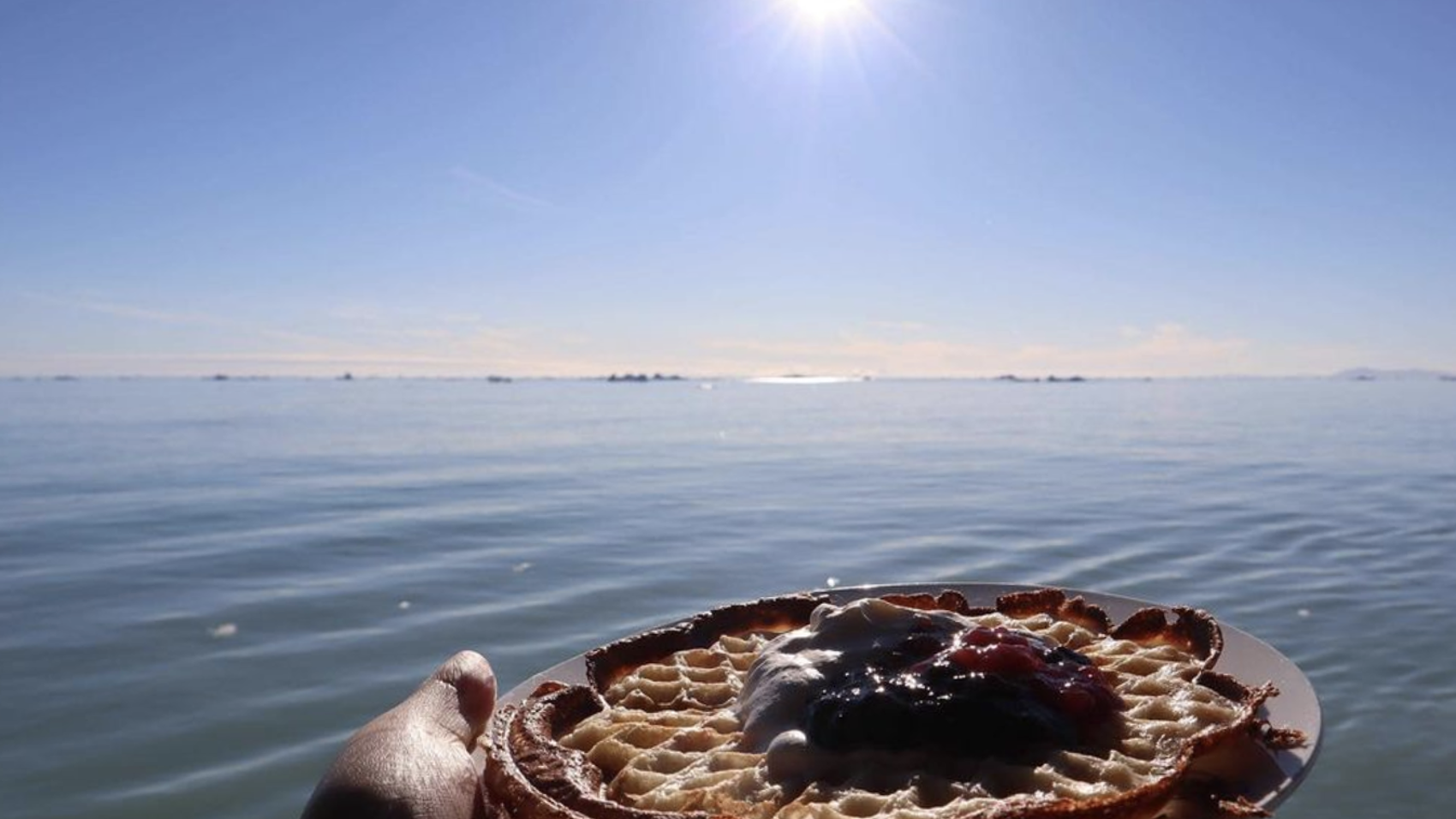

How does it feel to be "disconnected" from the world?
It's an amazing feeling. It’s incredibly rare that you get to experience this kind of life in today's connected society. It’s also an experience to be able to socialize in silence on board. It gives a peace of mind not knowing what’s happening all the time. As soon as we enter Longyearbyen, you see how everyone hides behind their phones. For me, the day we get to Longyearbyen after ten days at sea is the absolute most stressful. There is a lot to do with provisions and I hardly have time to make a call.
How would you describe the atmosphere on board?
I feel lucky to be on this boat, it’s a great bunch of people. The atmosphere is beyond expectation, I must say, considering the "micro world" you live in on board. Sometimes a bit of drama unfolds, but everyone still takes responsibility for spreading good vibes. As a chef you also get a close relationship with the guests, and I encourage everyone who wants to come down to the kitchen and hang out and talk. Sometimes real friendships develop. I have actually been invited to people's homes both in Alaska and Mexico.
How does it feel to have dad as captain?
It feels great! I just have to take it impersonally and remember that "captain's word is law". But we love each other very much so I'm looking forward to working together, and he's a damn good captain too.
Do you have a funny anecdote that you want to share?
I take a swim almost every day. Imagine the guests sitting there in their survival vests and they get to see the chef come down and take a dip. After five or six days, I can usually persuade them to come along. Some Texans or others who come from the south may never have swum in water below 20 degrees. For them, immersing the body in the freezing cold waters of the Arctic it can be a shocking experience. But then they can at least brag about having swum close to the North Pole!
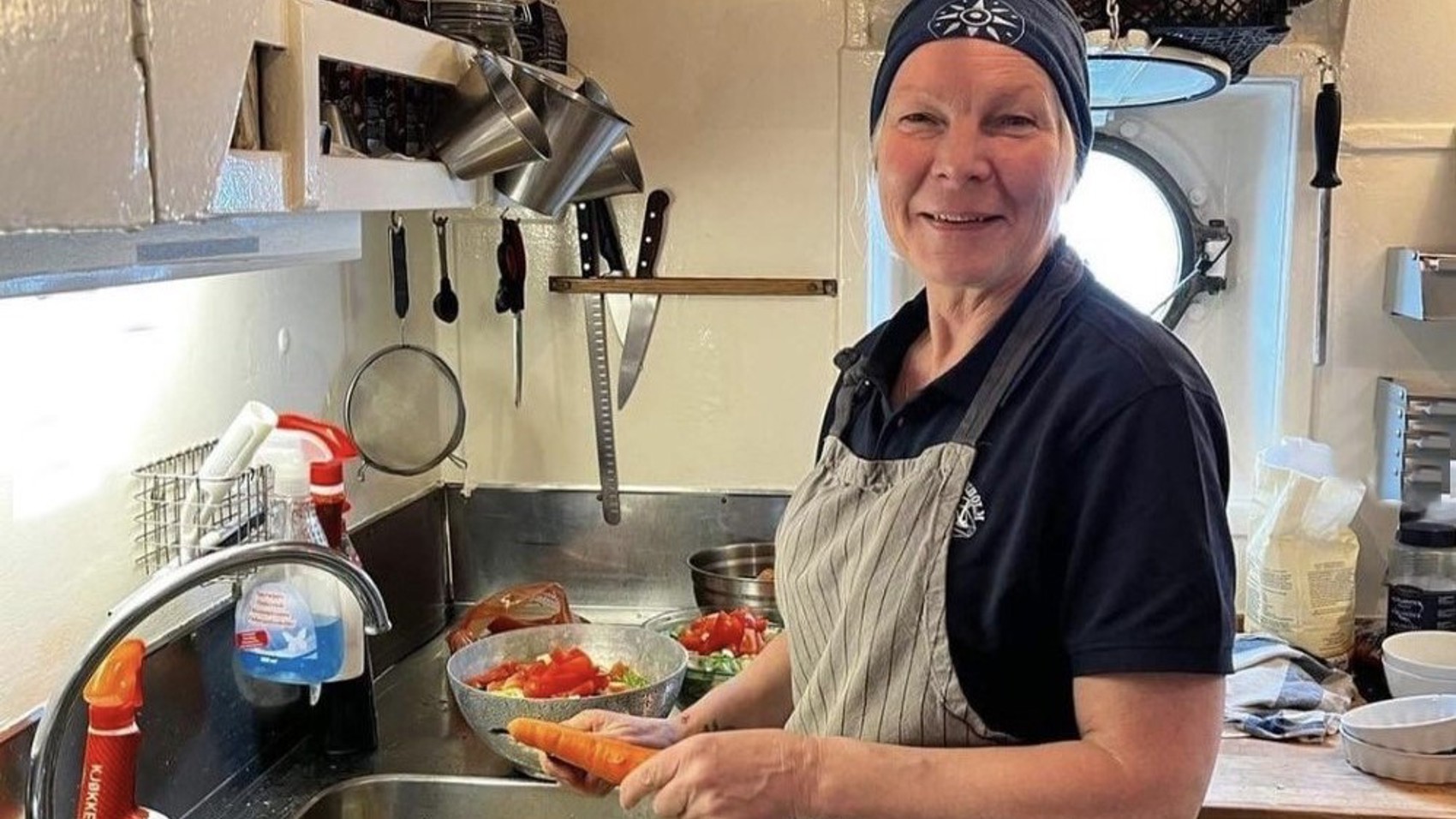

Lillbritt Karlsson
What is your role on board M/S Stockholm?
I'm a chief cook.
For how many seasons have you been working on board?
In total, I have been eight seasons aboard M/S Stockholm, with a few years off. The first season was in 2008. This year my role is to provision the boat for the season. I then work six weeks in the spring and six weeks in the autumn.
What is your professional background?
Basically, I'm a natural scientist and a cook. After a few years in the restaurant industry, I have alternated between different jobs on boats, including in the merchant fleet, on school ships and research ships. I have also run my own vegan restaurant and has been employed by the municipality as section manager for the dietary unit during the covid period.
How did you end up at M/S Stockholm?
That I ended up in the Arctic is a coincidence. I did my basic safety training with the crew on M/S Stockholm and thought it sounded interesting to work on board in such a unique environment and registered my interest.
What does a "normal working day" look like on board?
My working day starts at 7 AM and lasts until the dessert has been served in the evening, usually around 9 PM. After lunch I make sure to get a couple of hours to rest.
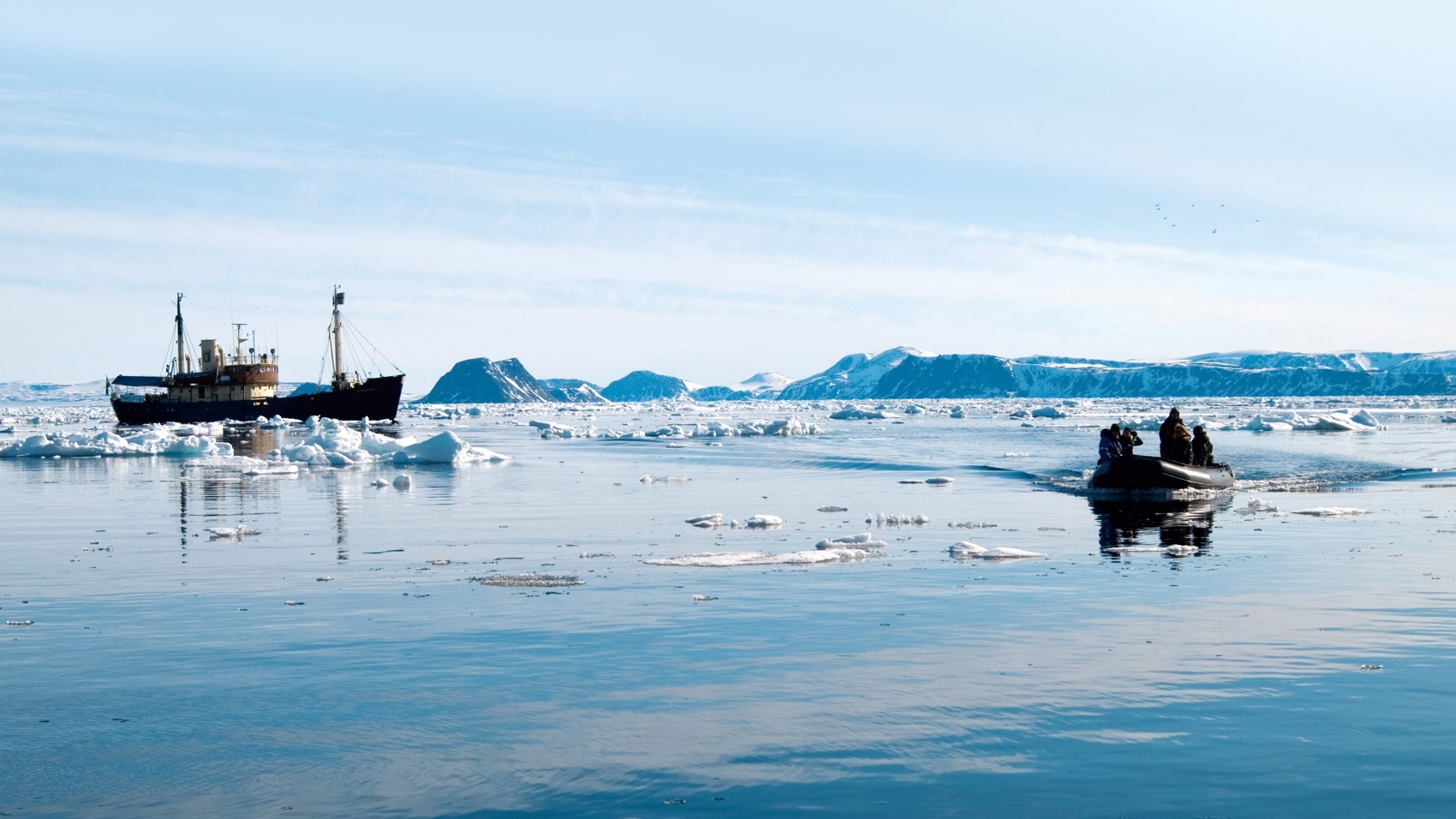

How do you plan a menu at sea?
I plan the meals according to the conditions we have on board, which means that fresh produce is limited. We can stock up in Longyearbyen, but the store there is mainly for serving the residents, which means that we don't always get what we order. The menu will be based on what we provisioned in Gothenburg, it does not change over the season, but I still try to create variety according to the food we have on board. The boat has limited space, so the challenge is to get the menu without fresh produce. We bake everything on board to save space and besides, freshly baked smells homely.
How does it feel to be "disconnected" from the rest of the world?
I think it’s a great advantage to not be connected, it gives peace of mind. All loved ones understand my work situation when I'm on board, and I'm more present when I'm home!
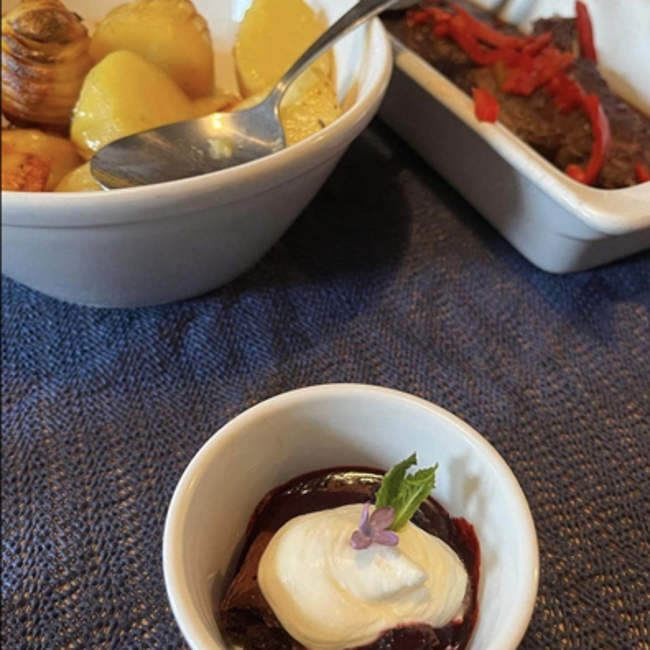

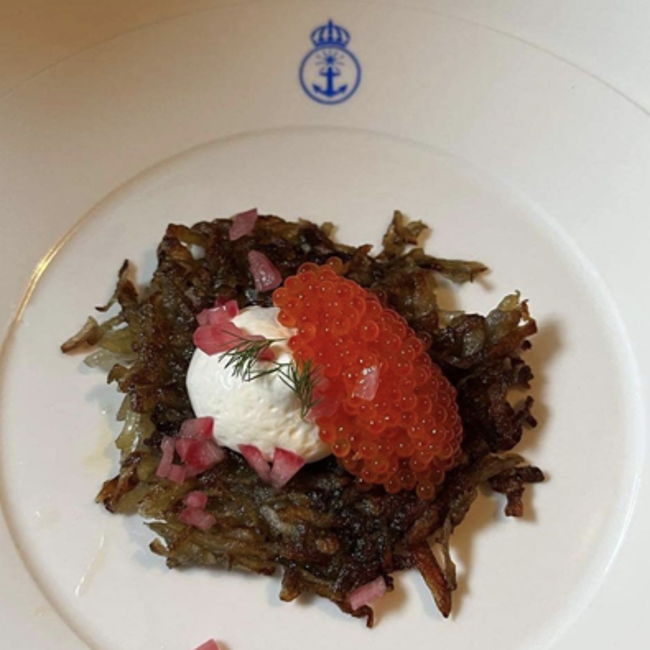

How would you describe the atmosphere on board?
Working so closely together can be a challenge, but we are all busy with our jobs on board so it usually flows well. The guests also bring new energy and make us not forget what a magically beautiful nature we have at our workplace.
Do you have a funny memory that you want to share?
There is often a jubilee among the guests. I remember a woman who was celebrating her 70th birthday and her husband had requested a special cake decorated with different seabirds in marzipan. Due to lack of space, the cake had to be placed in the front room where it’s cool. While I was resting for lunch, it blew up and the cake was thrown against the bulkhead. It became a form of sticky berry and cream installation with some deformed marzipan birds on it. A little embarrassed, I served the creation. I think the cake was the most photographed thing during the expedition.
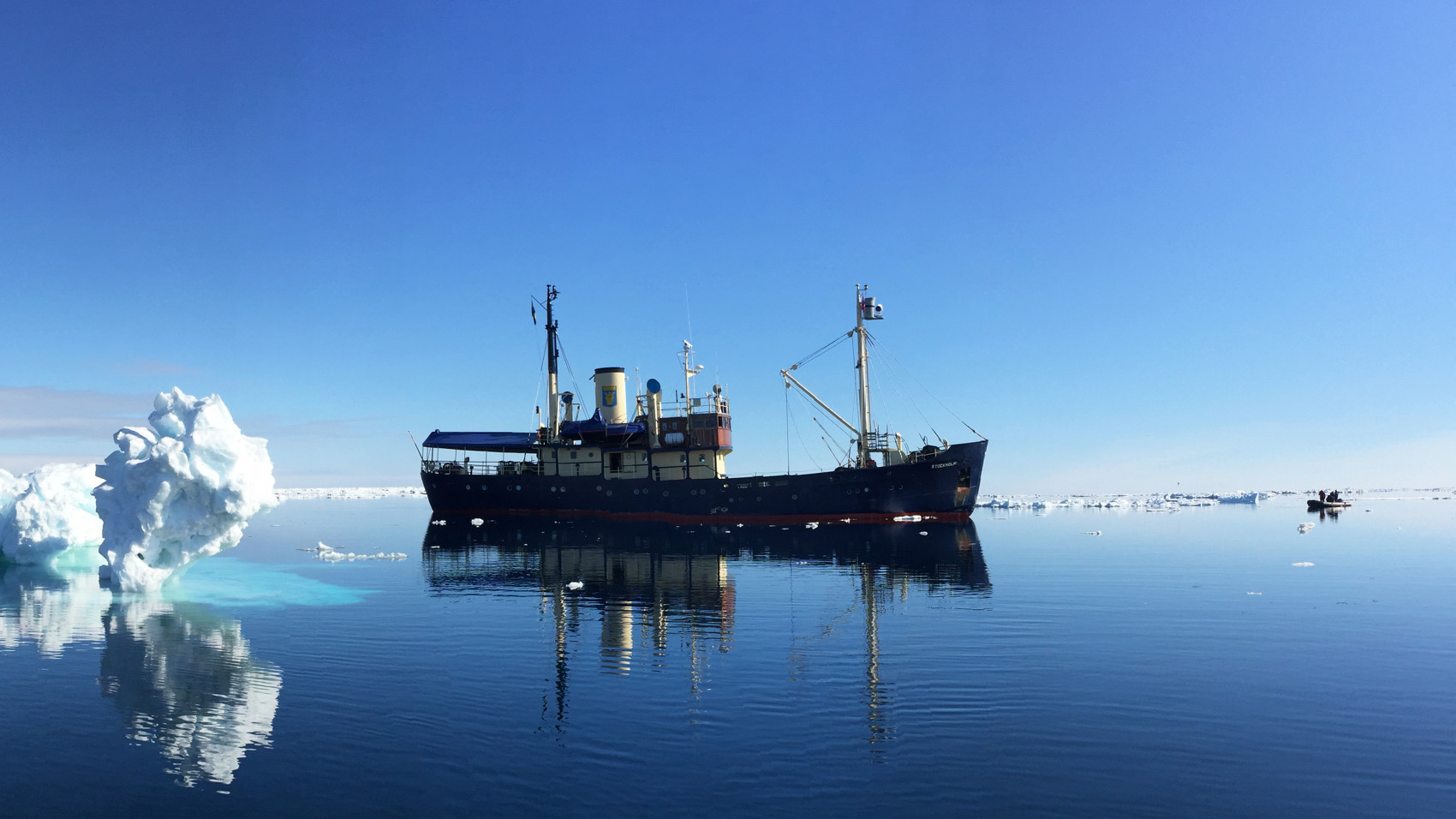

Please note: Depending on the lens used for a photo or video shot an animal may appear to be closer than it is. We always follow strict wildlife guidelines to ensure that we do not cause any disturbance.

